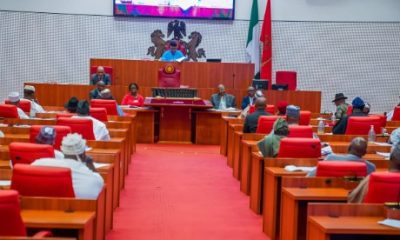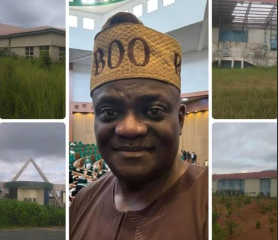The Federal Government and various education stakeholders have declared their commitment to ending the pervasive Almajiri street-begging crisis in Nigeria. Their strategy involves a comprehensive approach that integrates modern education with the existing Quranic learning system.
This unified stance was reached during a one-day presentation in Abuja on Thursday, organized by Civil Society Organisations focused on the Revitalisation of the Almajiri-Tsangaya System of Education in Nigeria.
Participants at the event advocated for a new, robust policy framework, fortified with legal backing from the National Assembly, to effectively address the challenges surrounding Almajiri education.
The Minister of State for Education, Prof. Suwaiba Ahmad, emphasized the need for a “bottom-up” policy approach.
She stressed the importance of actively engaging communities and state governments to ensure the sustainable reform of Almajiri education.
“According to her, we want to ensure that each and every Almajiri not only benefits from education, , but also has the opportunity to be a functional and effective member of the society,” Prof. Ahmad stated.
She further revealed ongoing governmental efforts. “The ministry has already begun a process of developing a national policy on Almajiri and will also sponsor a bill to the National Assembly.”
Acknowledging past challenges, Prof. Ahmad noted, “Every government, from Obasanjo’s time, had initiatives, but they were not sustainable; when another government comes, it stops. The aim of the policy is to provide adequate mechanisms for the operation of Almajiri schools in Nigeria.”
The minister highlighted broad governmental support for this initiative, including endorsements from the National Security Advisor, state governors, and lawmakers, all backing the proposed bill aimed at institutionalizing these crucial reforms.
Key plans to achieve this integration include significant infrastructure upgrades for Almajiri schools and the establishment of legal safeguards to protect Almajiri welfare, provide teacher incentives, and ensure parental accountability, thereby breaking the cycle of neglect.
Prof. Ahmad also highlighted the current administration’s investments in education, stating, “The present administration has made outstanding educational investments constructing 7,200 new schools, renovating 195,000 classrooms, producing 1,680,000 school furniture, training one million teachers, supplying two million teaching aids and distributing 103 million textbooks.”
In his address, the Executive Secretary of the National Commission for Almajiri and Out-of-School Children (NCAOOSCE), Dr. Muhammad Idris, shed light on the severe abuses faced by Almajiri children, including tragic cases of blindness, sodomy, and starvation.
He strongly condemned the systemic neglect and discrimination these children endure.
ALSO READ : FG trains 120 researchers to strengthen cancer research
Dr. Idris recounted harrowing personal encounters: “Guzeiru lost his two eyes in the quest to memorise Quran. Abdullahi, a 12-year-old boy was battling with his health last three months in Kano because he was sodomised by his master in his attempt to feed him. I met Ibrahim last year around 11 p.m., in Abuja, having been beaten by the rain of that day, crying, he said, ‘I couldn’t eat in the last 24 hours.’”
He commended President Bola Tinubu’s commitment to reforming Almajiri education and expressed gratitude to the education ministers for their persistent efforts to end child street begging.
Dr. Idris voiced his hope for impactful policy changes and urged collective action to integrate Almajiri children into mainstream society through comprehensive education and welfare reforms.
Country Director of PLAN International, Charles Usei, announced that his organization is at the forefront of a revitalized effort to reform Nigeria’s Almajiri education system.
Mr. Usei criticized past policies for their lack of concrete implementation frameworks and essential legal backing. “You can only have so many policies that don’t make sense if you don’t bring it to action. Once there is no policy legislation, the government doesn’t prioritise it,” he asserted.
He further stated that PLAN International has launched pilot programmes in Sokoto and Adamawa states to test effective models that seamlessly integrate Quranic education with fundamental literacy and science curricula.
“According to him, we have shown that this model works, but we need policy backing and accurate data.”
Mr. Usei emphasized the need for accountability, urging the Almajiri Commission to generate reliable data and secure crucial legislation to ensure the long-term sustainability of these reforms, especially given the decades-long disputes over UNESCO/UBEC statistics that have previously hindered progress.


 Entertainment1 week ago
Entertainment1 week ago
 Entertainment5 days ago
Entertainment5 days ago
 Comments and Issues1 week ago
Comments and Issues1 week ago
 Comments and Issues1 week ago
Comments and Issues1 week ago
 Comments and Issues1 week ago
Comments and Issues1 week ago
 Health7 days ago
Health7 days ago
 Health3 days ago
Health3 days ago
 Football7 days ago
Football7 days ago












